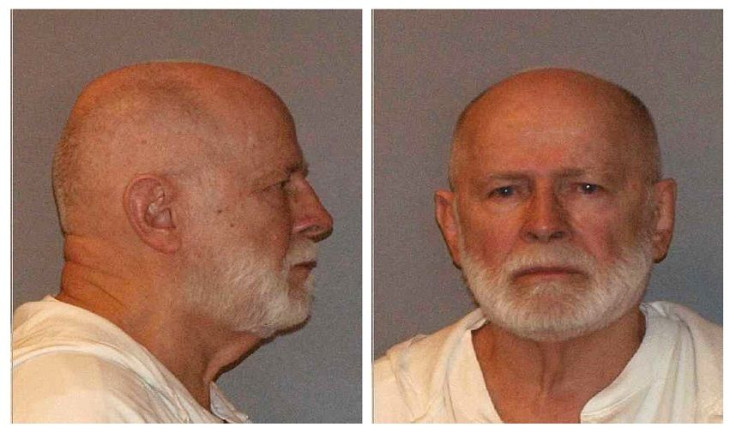‘My Life Was Wasted’: Crime Boss Whitey Bulger Pens Letter To High School Students

James “Whitey” Bulger Jr. was unremorseful when he was sent to prison in 2013 for killing 11 people. But his recent letter to high school students tells a different story. The Irish-American organized crime leader’s message to the teens was simple: They should not waste their time on criminals like him.
When Apponequet Regional High School students Brittany Tainsh, Michaela Arguin and Mollykate Rodenbush needed to interview a leader for the school’s National History Day competition, they decided to take an unconventional route and contacted Bulger about his opinion on his own legacy. They told the Boston Globe they chose the 85-year-old mobster to set them apart from other entrants, who chose to interview heroes and presidents.
To their surprise, Bulger replied. He sent the students, all 17 years old, a mailed letter, telling them he was not the leader they should be wasting their time on. He did not answer any of the girls’ actual questions, but he gave them much more.
“Don’t waste your time on such as I -- we are society’s lower, best forgotten, not looked to for advice on ‘Leadership,’” Bulger wrote to the students. He added that instead of focusing on him, the girls should create a website for wounded U.S. servicemen to do wonders for their morale and recovery.
The imprisoned crime boss admitted that he “took the wrong road” when he dropped out of school during the ninth grade. His younger brother, William Bulger, is the one to be admired, he said, calling him “A Better Man than I.” William is a former Massachusetts Senate president and former president of the University of Massachusetts. He was forced to resign from the university when he refused to testify in a 2003 congressional hearing regarding his criminal brother.
“My life was wasted and spent foolishly, brought shame + suffering on my parents and siblings and will end soon,” the seemingly repentant criminal wrote in the letter dated Feb. 24. “Advice is a cheap commodity some seek it from me about crime -- I know only one thing for sure -- If you want to make crime pay — ‘Go to Law School.’”
The girls were shocked with Bulger’s tone, to say the least. As Rodenbush told the Boston Globe, the most interesting aspect of the letter was Bulger appeared to be “almost regretful and nostalgic.” Their research about the aging crime lord was a far cry from his depressing tone.
However, he was not repentant at all, according to Patricia Donahue, whose husband Michael was killed by Bulger in 1982. The widow told the paper Bulger only referred to the suffering of his own family, but never seemed remorseful about killing his victims or about the suffering of their families.
Retired Massachusetts State Police Col. Thomas Foley, who led the investigation that resulted in Bulger's arrest, agreed. He said the letter gave no indication that Bulger felt the least bit sorry for his victims, and was remorseful only about being imprisoned.
The teens' report on Bulger won them first place in the district competition but failed to get them a place at the state competition. A website about journalist Nellie Bly won. But the students won two special awards: one for best use of primary sources and one for best project on Massachusetts history.
Bulger was on the run from the law for more than 16 years and had been on the FBI Ten Most Wanted Fugitives list before he was captured in California in 2011. He was convicted in 2013 on 31 of 32 counts, including 19 counts of murder, 11 counts of conspiracy to commit murder, racketeering, extortion, narcotics distribution and money laundering.
He was handed two terms of life imprisonment plus five years. He is serving his sentence at U.S. Penitentiary Coleman II in Florida.
© Copyright IBTimes 2024. All rights reserved.











